Our history
Providence has a history of compassionate health care and service to the community.
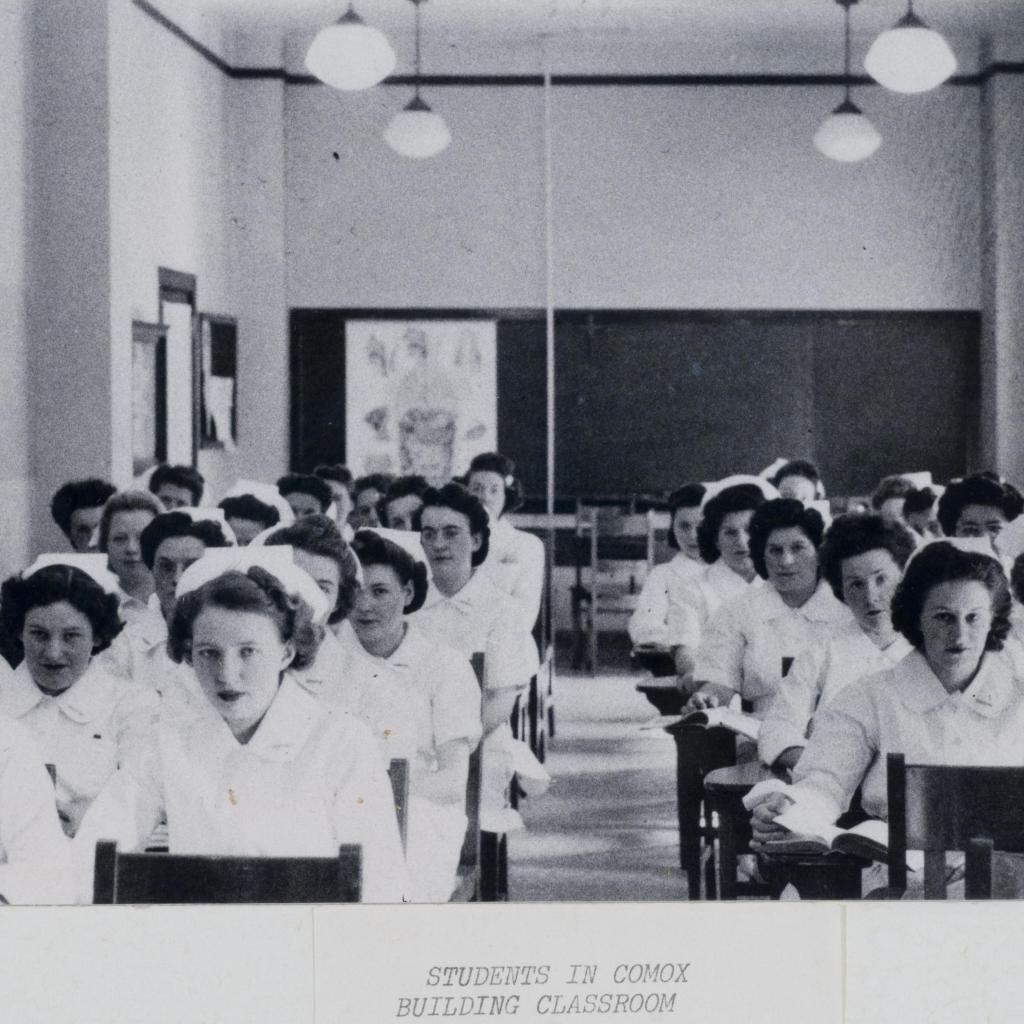
Overview
Providence Health Care was officially formed in 2000, however its history stretches back through epidemics and pandemics, the Great Depression, and two world wars.
It is a history that goes back to the earliest days of what is now known as the City of Vancouver. It is a history of compassionate health care and service to the community on the part of its founding partners.
Those founders are the five orders of Catholic nuns who created the following centres of care:
- St. Paul’s Hospital (Sisters of Charity of Providence)
- Holy Family Hospital (Sisters of Providence of St. Vincent de Paul)
- The CHARA Health Care Society:
Forging a tradition of social justice and compassionate care
The amalgamation of these organizations into a new health care society in 2000 sustained a shared heritage of Catholic health care that began in 1894 when the Sisters of Providence (as they came to be called) opened the first St. Paul’s Hospital. St. Paul’s Hospital makes up about 80 per cent of Providence Health Care, however another reason the name was chosen for the new organization is that each of the founding orders has a strong belief in “providence” – that is, the protective care of God.
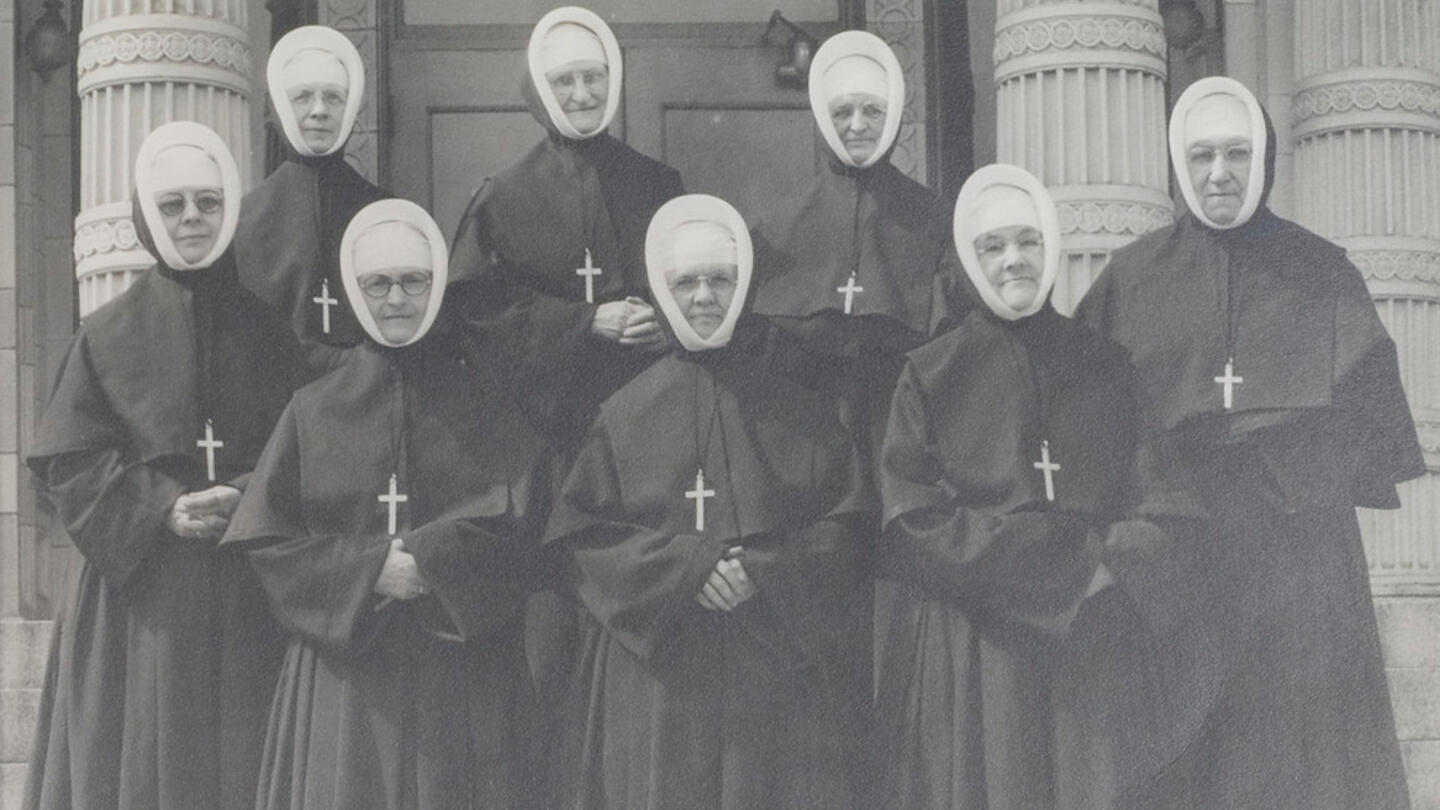
Each order was founded with a commitment to provide care to everyone who needed it. Each has a history of overcoming formidable odds to raise funds, build facilities, and train medical workers to be able to serve individuals who wouldn’t otherwise have had care.
Many of those individuals have faced – and continue to face – discrimination and stigmatization. In the early days, there was no social safety net, such as public health care. The founders of Providence Health Care provided medical care and even food and clothing to many people who could not otherwise afford these services and items. The Missionary Sisters of the Immaculate Conception moved to Vancouver in 1921 to provide health and education services primarily to the Asian community, whose members were subject to widespread racism. The Grey Sisters of the Immaculate Conception came to Vancouver in 1931 to open a home for elderly and destitute men. The Sisters of Charity of Mount St. Vincent and the Sisters of Providence of St. Vincent de Paul provided care to elderly people who had little support. St. Paul’s Hospital was founded on a pledge of providing compassionate, person-centred care for everyone in need.
This commitment continues to this day throughout Providence Health Care. St. Paul’s Hospital is not only a specialty-oriented tertiary-care teaching hospital but also the primary hospital for Canada’s poorest neighbourhood (the Downtown East Side). Mount Saint Joseph Hospital has acquired an international reputation for excellence meeting the needs of multi-faith and multi-ethnic communities. Holy Family Hospital is now considered a provincial leader in the multidisciplinary care of older people. Youville and Mount St. Vincent’s three facilities specialize in providing complex and extended care and psychiatric programs.
The populations we now work with continue to include people with complex medical and social needs who have challenges accessing appropriate health care. These include people who are Indigenous, racialized, have a substance use disorder, are non-binary or gender diverse, have mental health illnesses, or are new immigrants.
In our recent history, a notable example of our commitment to social justice and compassionate care is the work that put St. Paul’s Hospital at the epicentre of the AIDS epidemic. When AIDS (acquired immunodeficiency syndrome) first appeared in the 1980s, no one knew anything about it. Homophobia and the fear of contagion complicated the situation and few medical facilities were willing to treat AIDS patients. The Catholic sisters working at St. Paul’s were the first to welcome people with HIV/AIDS to St. Paul’s Hospital.
Due to the fundamental belief of the Sisters of Providence that no one should be turned away, St. Paul’s became a world-class AIDS research and treatment hospital and in 1992 was designated as the B.C. Centre for Excellence in HIV and AIDS. Ground-breaking work at the Centre led to a dramatic decrease in AIDS-related deaths in B.C. and helped guide international efforts to control the AIDS pandemic.
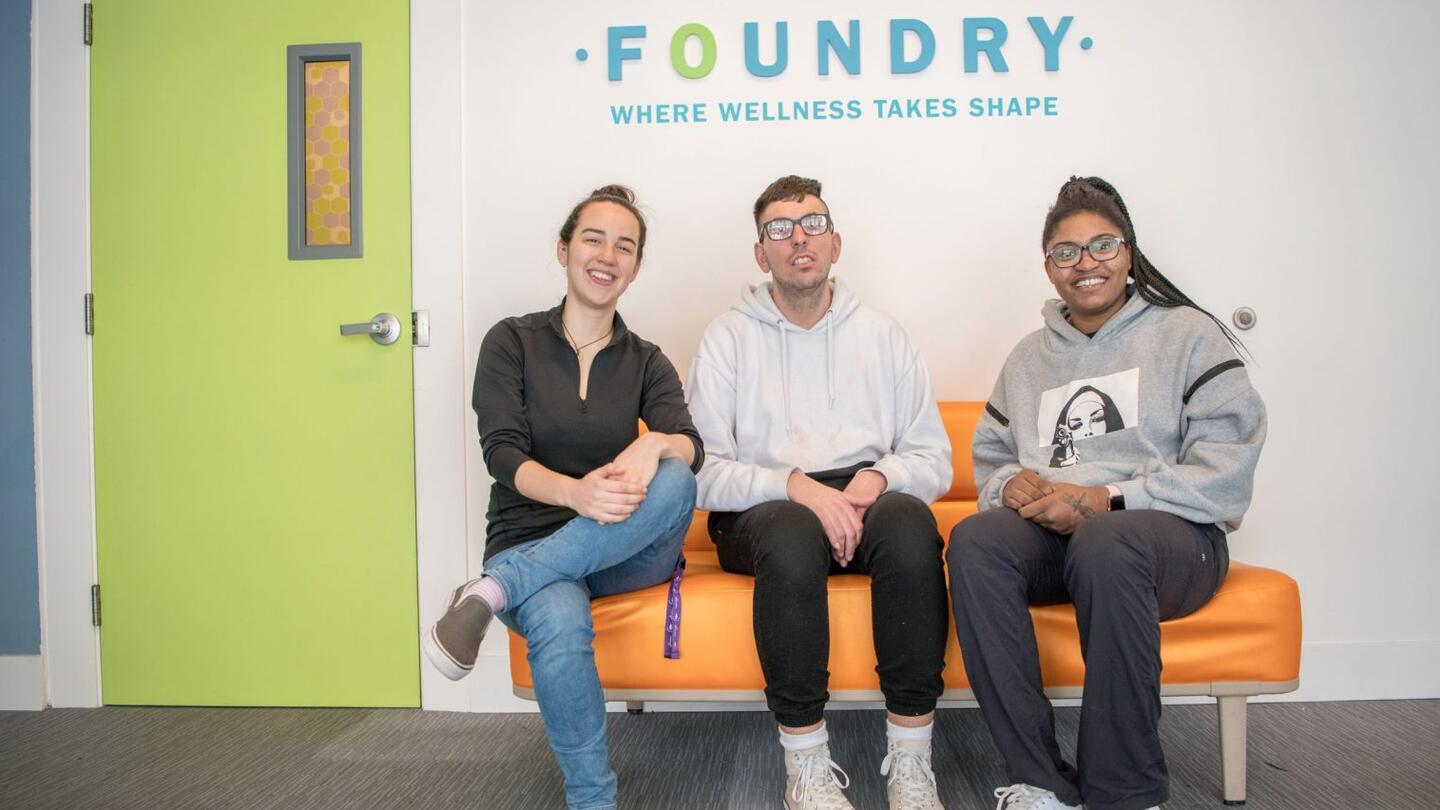
Providence has responded this way to other challenges facing people living in B.C. In 2007, a small team of psychiatrists at St. Paul’s Hospital – decided to take a completely different approach to helping young people before, and after, crisis. They knew that young people needed better access to mental health and substance use care, and primary health care. Also numerous social issues such as homelessness, unemployment, sexual identity issues and lack of education needed to be addressed. As a result, St. Paul’s Hospital launched the Inner City Youth (ICY) program. That program grew into a provincial network called the Foundry – with 28 centres in BC working with local community partners and agencies to provide youth with equitable access to integrated health and social services.
Providence’s approach to revitalizing seniors care is resulting in new resident-and-family-centred models of care. Providence’s “home-for-us” approach recreates the same comfortable feelings and genuine interactions seniors have had in their own homes – creating places where they eat when they’re hungry (not when the organization decides), sleep when they’re tired, and experience as much (or as little) independence as they prefer.
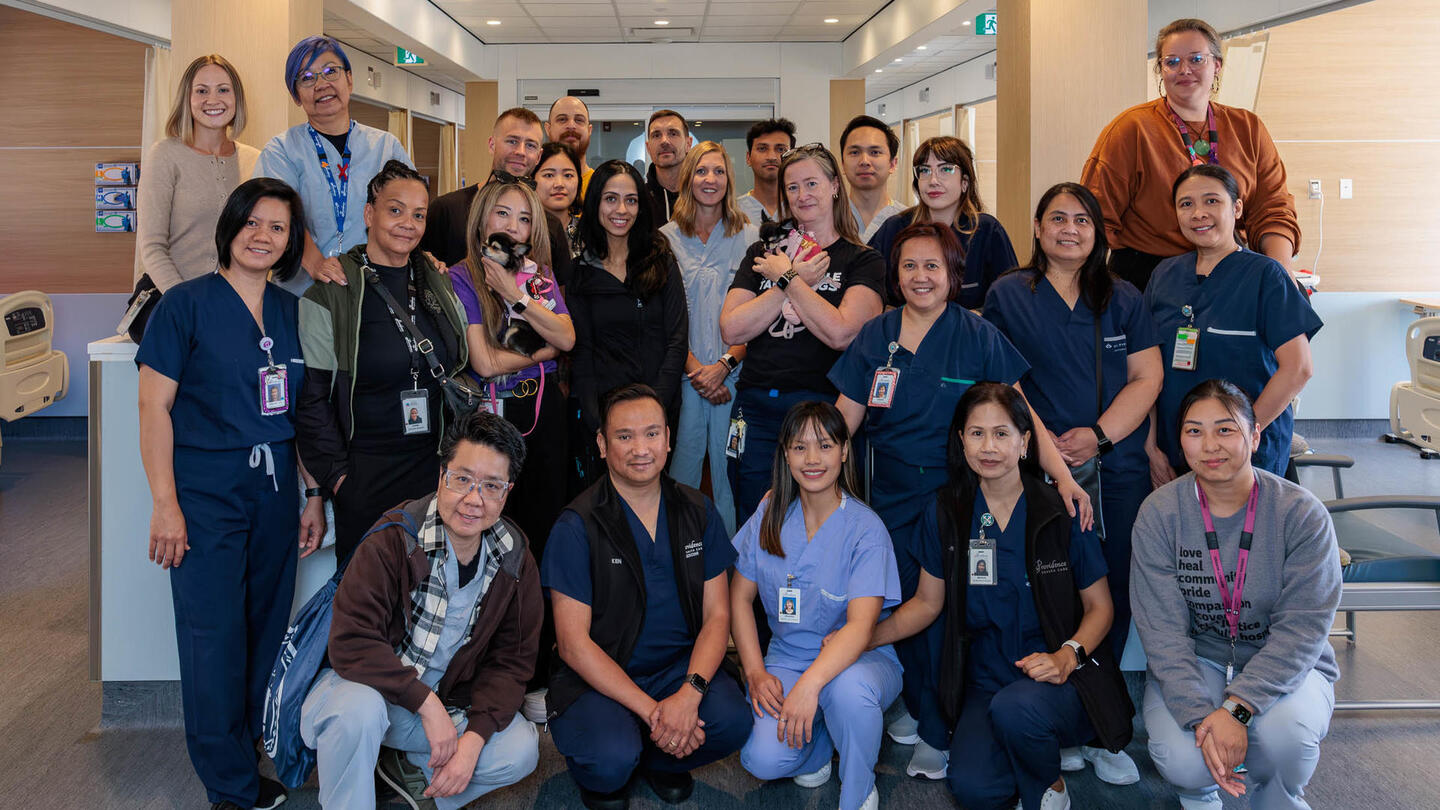
The toxic street substance crisis led Providence to work with its donor partners and the provincial government to develop and launch the “Road to Recovery” model of care in 2023 – the first of its kind in BC. It’s an innovative, multi-phased approach to transform substance use care in BC. It includes additional bed capacity at St. Paul's Hospital – supported by community beds – to enable a full spectrum of responsive and timely care for individuals requesting help for a substance-use disorder, and a partnership with government to create a provincial-wide network, to drive co-ordinated and evidence based substance use care across B.C.
Truth and Reconciliation

Today, a key focus of Providence’s social justice work is our commitment to Truth and Reconciliation with Indigenous Peoples.
Our organization has come to recognize the colonial abuses carried out against Indigenous Peoples. Laws, policies, and practices aimed to eliminate Indigenous cultures. These included residential schools, “Indian” hospitals, and the Sixties Scoop in which Indigenous children were forcibly adopted out to non-Indigenous families. The harms from these abuses persist today, including widespread discrimination in the Canadian health system. As a Catholic-sponsored health care organization, we realize that Providence Health Care has both a responsibility and an opportunity to help repair those harms and support reconciliation.
It wasn’t that long ago that we made statements such as: “St. Paul’s has always been there to meet our community’s needs.” Such statements do not acknowledge that the history of this region goes back long before the City of Vancouver was founded. Providence facilities are on the unceded territories of First Nations who have lived on these lands since time immemorial. These Nations had – and continue to have – vibrant cultural and spiritual traditions that nurtured robust healing practices.
Providence now serves a diverse group of Indigenous people who come from our Host Nations – sel̓íl̓witulh (Tsleil-Waututh), sḵwx̱wú7mesh úxwumixw (Squamish), and xwməθkwəy̓əm (Musqueam) – as well as other First Nations, Métis, and Inuit communities from across Canada. We recognize the unique rights, interests and cultures of these groups.
In 2022, Providence added reconciliation as a foundational principle to its strategic plan, Mission: Forward. In 2021, Providence Research released a research strategic plan, Discovery: Forward. Each plan included commitments to truth, justice and reconciliation with Indigenous Peoples In 2022, PHC announced its first-ever Indigenous Wellness and Reconciliation Action Plan.
We are committed to social justice and reconciliation in action in health care. We believe that the shared value of spirituality honoured by both Indigenous Peoples and Providence Health Care unifies our efforts for a more just and promising future.
Future: Forward
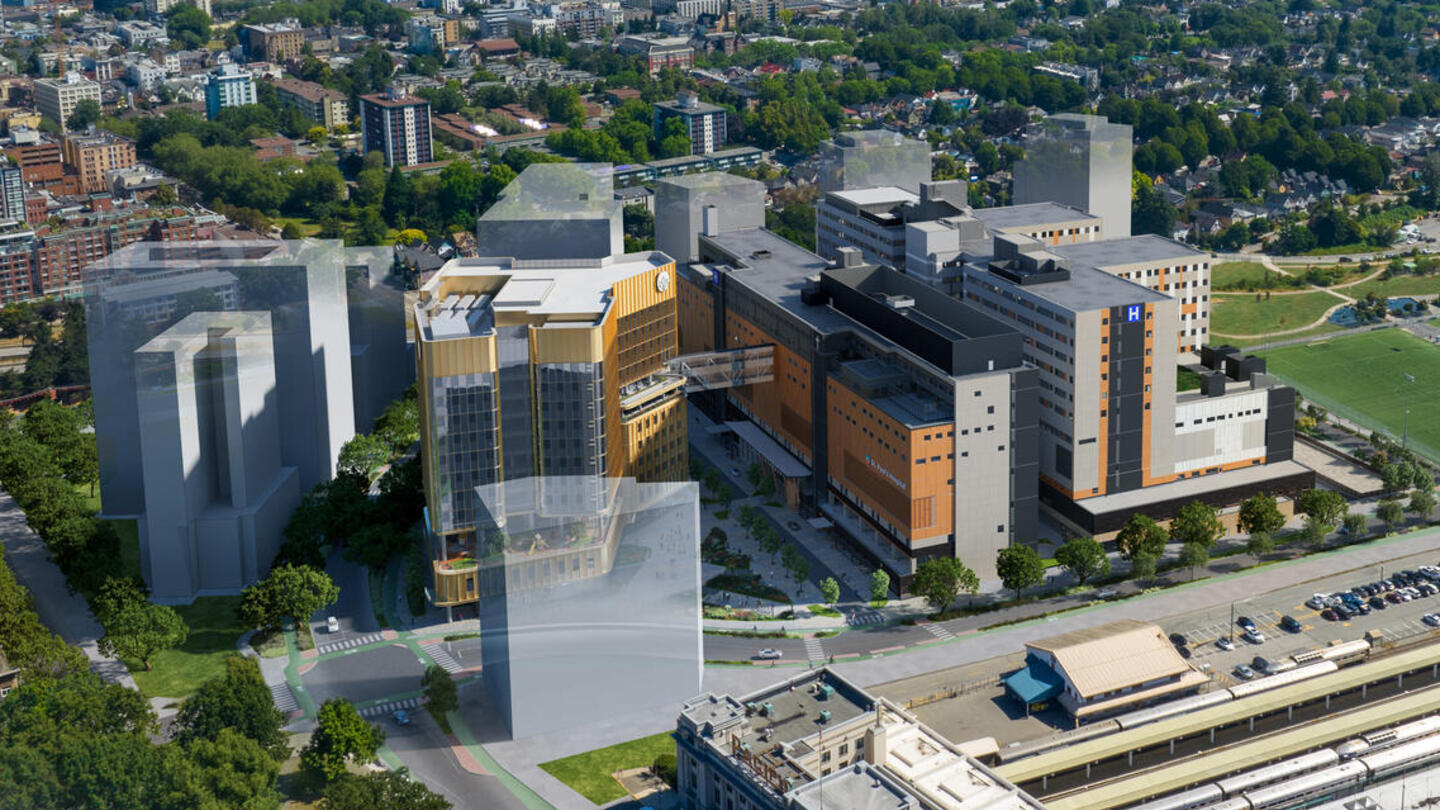
As we work today to renew our organization, we are guided by our history. We are in the midst of a $2.2-billion replacement project for St. Paul’s Hospital that will open in 2027. However, the spirit of Providence Health Care goes beyond bricks and mortar. Whether we are working at a hospital or a hospice, a community clinic or a long-term care facility, our goal is to always be responsive and relevant to the individual needs of the people we serve.
Ours is a legacy of social justice grounded in excellence, respect, spirituality and integrity. Through this legacy we have sought solutions that have transformed care and research globally.
We remain called to respond to the unmet need; only now, things are changing faster than ever. Our population is living longer. Rates of dementia and other age-related conditions are on the rise. Care has become more complex. The COVID pandemic and the epidemic of toxic drug deaths join ongoing issues such as stretching finite resources to meet a seemingly infinite stream of needs.
Our task at this critical juncture is to recognize these changes and convert them into opportunities. The challenge is daunting but we face it from a position of strength that harkens back to the legacy of the founding Sisters. They were pioneers, risk takers and innovators who modeled courage, compassion and creativity. Like them and all the others who have worked at our organization since 1894, we will continue to embrace learning, technology, and partnerships to offer seamless care to those we serve.
When we are at our best, we are an organization that can change the world. This is the opportunity before us.